 Leading Blog | Posts by Month |
 Leading Blog | Posts by Month |
01.31.08

Out of Context: A Matter of Character"The issues that provoked the present crisis were not overly subtle. You don't need a weatherman to know which way the wind blows, and CEOs do not need a business ethicist to tell them right from wrong. What they need is the character to do the right thing, which is to say, the mettle to avoid the temptation to talk themselves out of their knowledge of right and wrong even if that knowledge lowers their profit margins." —Gordon Marino, Wall Street Journal July 30, 2002
Posted by Michael McKinney at 10:02 AM
01.30.08

5 Leadership Lessons: Inside Welch's Communication Revolution at GE Lane asks: "What jobs are you disqualifying yourself from because of poor presentation skills? These efforts are fairly easy to acquire, and involve the architecture and effort in the presentation itself, rather than theatrics and what color dress you wear."
Posted by Michael McKinney at 09:24 AM
01.28.08

Top-Down Change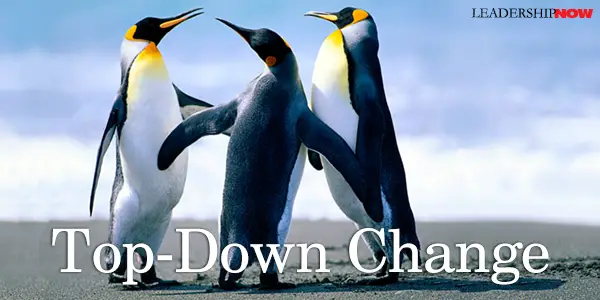
THE following comment was made regarding John Kotter’s book Our Iceberg Is Melting and the 8-steps for leading change presented in it: “I've always interpreted John Kotter's 8 Step Change Framework as top-down. And since most top-down change fails, I've been wary of the 8 Steps.” Top-down change doesn’t fail because it is top-down. Top-down change fails – as does any kind of change – when it is not implemented properly. Hence, the need for Kotter’s eight-step change framework. “Top-Down” isn’t the problem. We need not be so afraid of it. Top-down hierarchies or approaches are common and natural in most efforts humans undertake to organize themselves. Top-down hierarchies unfortunately and incorrectly are often equated with authoritarianism. This is understandable. To be fair, it is common to find people at the top of these organizations that let their human nature get the best of them and become controlling, dictatorial, or just in general, inappropriate in their relationships with those under them. But it doesn’t make the organizational concept itself bad – just poorly executed. This isn’t a structure problem, but a human one. We need leaders that are humbled by their role and not taken by it. Certainly, change can be initiated from anywhere in an organization. A good leader knows that good ideas can be found at all layers of any organization and actively seeks them out. However, no matter who you are, when seeking to make a change, it should be remembered, that if those at the top of an organization, the leader of any group, or the designated decision-maker(s), don’t see the value of the change and commit to it, the change will fail regardless of the perceived structure or where it is coming from—up or down. Even “leaderless” organizations (an authority-disguising term itself) have structure and levels of authority even if temporary or shifting. Change happens when someone commits to a new way of doing things and leads others to do the same. There are processes, like Kotter’s 8-step program, that help one to do that. The principles apply whether one is leading top-down, up, or even among a group of friends. Wherever you find yourself in a hierarchy, your change initiative must be communicated properly for others to receive it or act upon it. Kotter’s first step is to take the issue to the right people. At that moment you are in the driver’s seat. 
Posted by Michael McKinney at 03:23 PM
01.25.08

Deciding How We Decide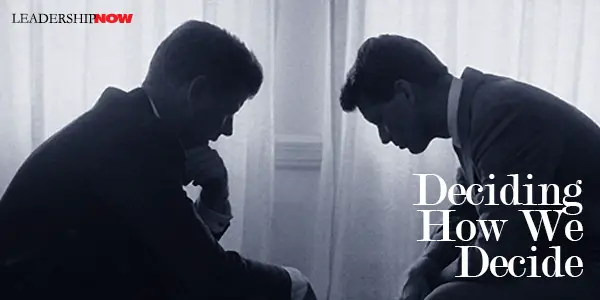
HOW WE COME to decisions has to be as important as the decisions we come to. Changing how we decide may be the fundamental shift we can make in how we—as individuals and organizations—change. It is appropriate to spend some time thinking about it. While a single person may make the final decision, it should always be made in an atmosphere of open listening and sharing. In Why Great Leaders Don’t Take Yes for an Answer, professor Michael Roberto, devotes a chapter to this issue. He begins by showing how John F. Kennedy changed the decision-making process from the tactics employed in the failed Bay of Pigs decision to the better process employed in coming to the successful conclusion of the Cuban Missile Crisis. It demonstrates “how leaders can learn from failures and then change the process of decision that they employ in the future.” It’s an interesting case in demonstrating the importance of deciding how we decide and having the mindset to do so. He discusses four critical choices that affect a leader’s ability to “cultivate constructive conflict and build enduring consensus: First, the leader determines the composition of the decision-making body. The selection should be based on access to expertise, implementation needs, the role of personal confidant, and the effect of demographic differences. Second, they shape the context in which deliberations will take place. What norms and ground rules will govern the discussions? Third, the leader determines how communication will take place among the participants. How will people exchange ideas and information, as well as generate and evaluate alternatives? Structured? Free exchange? Fourth, the leader must determine the extent and manner in which they will control the process and content of the decision. What roll will the leader play? Roberto adds these important cautionary comments about content-centric and process-centric learning: When decision failures occur, many executives focus on the issues involved, and they seek to identify the mistaken judgments and flawed assumptions that they made. However, many leaders do not push further to investigate why they made these errors. Too many of them engage only in content-centric learning. By that, I mean that they search for lessons about how they will make a different decision when faced with a similar business situation in the future.Good material. Check it out. See Also: 
Posted by Michael McKinney at 01:41 PM
01.24.08

Out of Context: Information Overload“Everyone spoke of an information overload, but what there was in fact was a non-information overload.” —Richard Saul Wurman, What-If, Could-Be: An Historic Fable of the Future
Posted by Michael McKinney at 09:44 AM
01.23.08

Looking for Tomorrow’s Leaders
The complete interview is available on the HBR web site and is worth the visit.
Posted by Michael McKinney at 09:04 AM
01.22.08

The 2008 NeuroLeadership Summit
This year, the Global NeuroLeadership Summit will be held in two cities—Sydney and New York. Current information about the institute and upcoming conferences can be found on their web site.
Posted by Michael McKinney at 09:36 AM

Sir John Harvey-Jones Dies at 83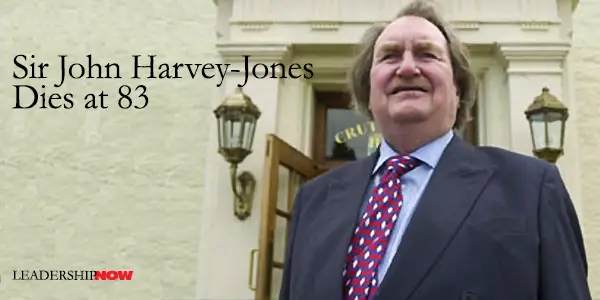
Sir John Harvey-Jones, one the great industrial leaders of his generation, died peacefully in his sleep on January 9th after a long illness. He was knighted in 1985 for his service to industry. The Economist reported, "His hair was long and scruffy, his ties ludicrous and his manner jovial bordering on Falstaffian; a board meeting, for him, was a debate, punctuated by gales of his maniacal laughter. Few were better at the brisk summing-up and the clear, no-nonsense decision. He could not have been more unlike the dull, grey-suited types in most British boardrooms." (He was chairman of The Economist from 1989 to 1994.) In his book Making It Happen: Reflections on Leadership he wrote: I believe business is still a fascinating and extremely worthwhile activity, which places demands upon every human attribute you can command. Courage, compassion, balance, humour, listening, communicating, passion, caring and risk-taking are the keys to business success — and indeed to success in living. More about Sir John Harvey-Jones:
On This Blog:

Posted by Michael McKinney at 09:34 AM
01.21.08

You Attract the People Your System InvitesIt’s no secret that healthy environments attract healthy people. Healthy people leave environments that are not or more often than not, get pulled down by them. Yet, it is something we tend to forget. When we find a system or environment that is wrong, there is something wrong at the top. It is from there that the change must come if something is out of kilter.Harvard Business Review published an interview this month with Lazard CEO, Bruce Wasserstein. In Giving Great Advice, authors Thomas Stewart and Gardiner Morse relate his comments regarding attracting and developing good talent. We have to want to attract a network of stars—people who communicate and cooperate but are entrepreneurial and stand out as quality individuals, who are not the cogs in a corporate machine. Quality people must be managed with customized approaches. The idea is to create a hothouse where young talent is nourished by our culture and people are encouraged to think creatively, think deeply, think about the long-term client relationship—but above all, think. I want them to reflect on what they are doing and why, and then wonder, “Can we do better?”
Posted by Michael McKinney at 09:12 AM
01.16.08

The Other Side of Leadership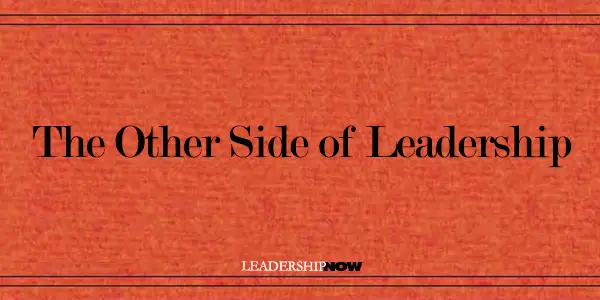
IT may seem counter-intuitive, but great followers make great leaders. In Reinventing Leadership, Warren Bennis wrote, "Good leaders should also be good followers. If you're coming up within an organization, you must be a good follower or you're not going to get very far. Leaders and followers share certain characteristics such as listening, collaborating, and working out competitive issues with peers." Echoing this thought, authors Chris Brady and Orrin Woodward, stress the importance of becoming a Performer in leadership development—the need to create a record of performance. That is to say, you need to become a great follower, a great contributor. In their excellent book, Launching a Leadership Revolution, they wrote:The quickest, most assured way of gaining that track record of performance is to absolutely master the patterns of success already established in an organization. It should be the goal of every leader striving to become a Performer that the entire organization notices his abilities with the proven patterns. This will give him a platform and the experience to help others accomplish similar results. That is the route to influence. As the Marquis of Halifax wrote in 1693, “When a Gentleman hath learnt how to obey, he will grow very much fitter to command.”
Posted by Michael McKinney at 11:44 AM
01.14.08

5 Leadership Lessons: What is Your Intention?
Posted by Michael McKinney at 03:10 PM
01.11.08

Sir Edmund Hillary Dies Today at 88 In 1953, Edmund Hillary, who with his Sherpa guide Tenzing Norgay, became the first known men to conquer Mount Everest, the world's tallest peak. Harry Gordon wrote in The Australian, “That Hillary was first to step onto the 8848m summit has been the subject of much subsequent controversy, but it is a superficial and somewhat pointless distinction since neither of them could have reached the top without each other's or the whole team's help. Indeed the expedition was a textbook example of teamwork where, through the sustained efforts of everyone, the two most suitable climbers made it to the summit of the mountain.” In an interview, Sir Hillary talked about leadership: There are some people who are natural leaders, who have the ability to think quickly or choose the right decisions at the right moment. But I think there are an awful lot of us who have to learn how to be a leader, and in actual fact, I believe that most people, if they really want to, can become competent leaders.Sir Hillary devoted all of his life to helping the Sherpa people of Nepal through the Himalayan Trust he created in 1960. In a 1995 interview with James Clash, Hillary said, "I think the most worthwhile things I've done have not been on the mountains or in the Antarctic, but doing projects with my friends, the Sherpa people. The 27 schools we've now established, the hospitals—those are the things I would like to be remembered for."  In November 2007 a institute was founded to recognize and foster outstanding international leadership in the name of Sir Edmund Hillary—the Hillary Institute. The Institute is creating a new international award—to be known as the Hillary Step—to be awarded to a person who displays great leadership in their chosen field. The Hillary Step will be bestowed every four years and will be worth $NZ 1 million. The Hillary Step is intended to recognize someone who has already displayed outstanding leadership, but who is still in mid-career so as to help further their work.
Posted by Michael McKinney at 11:07 AM

Are You Mature?
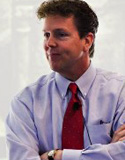 He also cited another reason. Scientists have found that from ages 11-14, kids lose some of the connections between cells in the part of their brain that enables them to think clearly and make good decisions. The brain is pruning itself. It’s ridding itself of ineffective and weak brain connections. This creates a situation where the brain is between the child brain and the not fully developed adult brain which forms around age 20. Elmore asks, “What does this mean?” Students today are consuming information they aren't completely ready to handle. The adult part of their brain is still forming and isn't ready to apply all that our society throws at it. Their mind takes it in and files it, but their will and emotions are not prepared to act on it in a healthy way. They can become paralyzed by all the content they consume. They want so much to be able to experience the world they've seen on websites or heard on podcasts, but don't realize they are unprepared for that experience emotionally. They are truly in between a child and an adult. Elmore lists the qualities that we should begin developing in our own kids (and we might look for in ourselves).
Posted by Michael McKinney at 07:30 AM
01.09.08

Correct Choices Are the Key to Success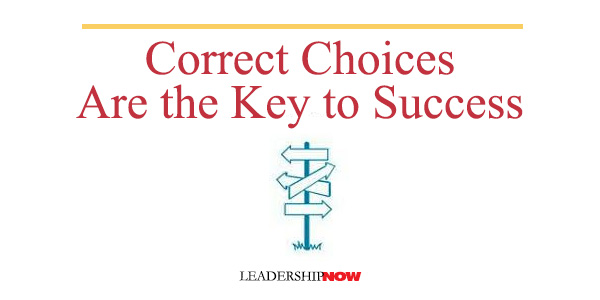 AS with Tracy’s Flight Plan, we are once again told that there are no shortcuts on the road to success. In Monday Morning Choices, David Cottrell reasonably claims that success is realized by making more good choices than bad ones and recovering quickly from bad choices when you do make them. Making good choices is the trick.
AS with Tracy’s Flight Plan, we are once again told that there are no shortcuts on the road to success. In Monday Morning Choices, David Cottrell reasonably claims that success is realized by making more good choices than bad ones and recovering quickly from bad choices when you do make them. Making good choices is the trick.
He divides success enhancing choices into 3 areas: Personal Choices (choices people make that will mold their character), Action Choices (choices that move you beyond just talking about what you want to do) and Investment Choices (those choices about investing in people who will make your life better). To help you to develop your skills for making good choices, he has designed a weekly Ben-Franklin-type program that addresses four key choices in each of the three categories. As Monday sets the tone for the rest of the week, he suggests starting each Monday morning with one of the areas and make a commitment to do something different as a result. In brief, the 12 key choices we all need to address are:
Cottrell has a well-thought-out chapter devoted to each of the above choices. Each chapter has discussion questions that you can use with your own team each Monday morning. 
Posted by Michael McKinney at 09:44 AM
01.07.08

The Real Secret of Success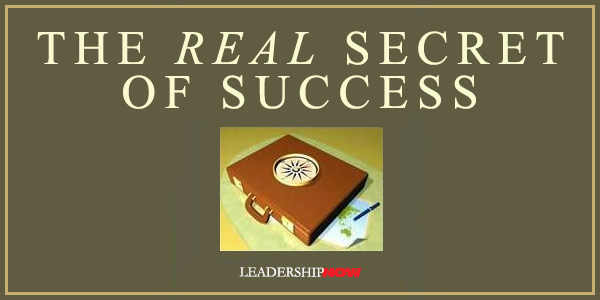
BRIAN TRACY has produced another level-headed book with Flight Plan. He correctly asserts that “Every year or two, someone comes along with a book like The Secret, suggesting that there is a quick and easy way to be happy and make a lot of money. According to The Secret, all you have to do is to think and visualize positive thoughts and you will attract into your life all the good things you want. This idea appeals to people who are unwilling to do the hard work that is necessary to achieve anything worthwhile.” Success happens for a reason and it’s not wishful thinking. We are all subject to the Law of Cause and Effect: For every effect, there is a cause or causes. You get what you put in. It’s as simple as that. It’s not luck or mysterious forces. Actually, that should provide some comfort. It means that it is up to you. You’re in the driver’s seat. Tracy applies the principle well: “If you do what other successful people do, over and over again, nothing can stop you from eventually getting the same results that they do. Conversely, if you don’t do what other successful people do, nothing can help you.” That’s pretty straightforward. Tracy lays out twelve steps to follow to help you determining and responding correctly to the many hundreds of choices in your journey through life that will help to create the results you’re looking for.
Tracy’s ideas are well worth putting into practice as you begin the new year. He writes, “Character is the ability to follow through on a resolution after the enthusiasm with which the resolution was made has passed.” 
Posted by Michael McKinney at 08:56 AM
01.03.08

Konrad Lorenz on Reflection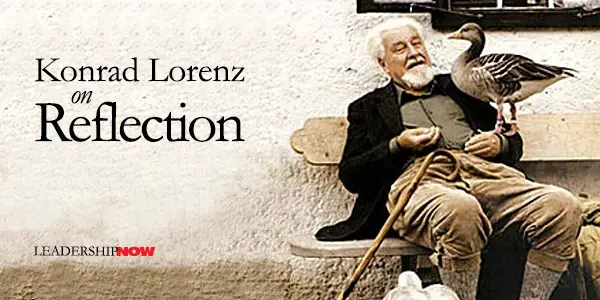
IN his book, Civilized Man’s Eight Deadly Sins, Austrian zoologist and Nobel Prize winner Konrad Lorenz, wrote of what is lost in man’s race against himself. Anxious haste and hasty fear help rob man of his most essential properties. One of these is reflection. . . . A being unaware of the existence of its own self cannot possibly develop conceptual thought, word language, conscience, and responsible morality. A being that ceases to reflect is in danger of losing all these specifically human attributes. 
Posted by Michael McKinney at 09:50 AM
01.01.08

Leadership Books: January 2008Here's a look at some of the best leadership books to be released in January.




Posted by Michael McKinney at 07:22 AM
|
BUILD YOUR KNOWLEDGE


How to Do Your Start-Up Right STRAIGHT TALK FOR START-UPS 
Grow Your Leadership Skills NEW AND UPCOMING LEADERSHIP BOOKS 
Leadership Minute BITE-SIZE CONCEPTS YOU CAN CHEW ON 
Classic Leadership Books BOOKS TO READ BEFORE YOU LEAD |
|